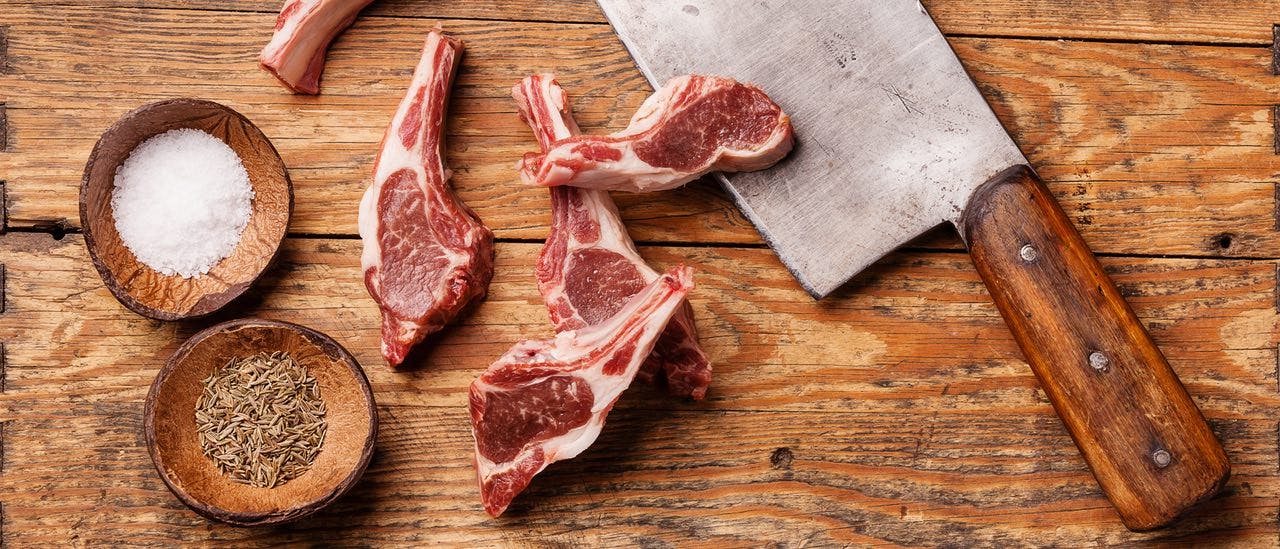
What's In a Name? Organic vs. Grass Fed Meat in Australia
So, you're on YourGrocer browsing the offerings at The Organic Meat Specialists. On tonight's menu: beef and feta meatballs with rye flatbread. Yum.
The recipe calls for 500g of "top quality" beef minced. That should be easy enough. Or, at least, you think it should. But, when it comes to figuring out just what "top quality" means, you run into a problem. Not a huge problem, it's true. An annoyance, let's call it.
On one hand, you can have us deliver you a perfectly delicious looking package of "Organic" meat. On the other, we could send over an equally tasty-seeming hunk of "Grass Fed" beef.
What's the difference? Is one necessarily better than the other? Never fear. We're here to help.
What Makes Australian Meat Organic?
You might imagine that all beef labelled as "organic" for sale in Australia meets the same standards. That sure is what we would have thought. But, it turns out that "organic" doesn't have one standardised meaning for meat produced in Australia to be sold here.
According to the Department of Agriculture, "[t]here is no mandatory requirement for certification of organic product sold domestically in Australia." Instead, organic producers can choose to be certified "organic" by one of six private certification organisations, each of which enforces its own certification standard based on the so-called "National Standard" (which sets minimum requirements for exported Australian products that are labelled "organic").
Feeling confused? We're right there with you. What this all means to us is that the certification label that you see on that package of beef mince actually matters. It's a signal that the meat producer has gone to the trouble of following a (usually strict) set of rules for ensuring that livestock have not come in contact with, consumed, and/or otherwise been tainted by potentially harmful chemicals and environmental conditions, and that their meat has been handled and processed in a way that ensures a minimum level of quality and cleanliness. To get an idea of how detailed and complicated these rules can be, check out this 2017 certification standard from one of the largest certification organisations, Australian Certified Organic.
But beware! What one certifying organisation calls "organic" meat might not be called "organic" under the standards of another. We can't give advice on which of these certifications is the best for you and your family, but we encourage you to check them out at this Organic Federation of Australia resources page. What we can say is that if you don't see a certification logo on a package of meat labelled "organic" (which is allowed so long as it doesn't violate truth-in-advertising laws, believe it or not), you might feel better opting for one that does have a certification logo instead.
What Makes Australian Meat "Grass Fed"?
Generally speaking, Australia-raised meat labelled "grass fed" and sold in Australian supermarkets comes from livestock that (no surprise) has fed on pasture grass. But, just like the whole "organic" certification rabbit hole, things only get complicated from there. (Feel free to let out a hair-pulling scream of exasperation here. We won't blame you.)
Ok, deep breath. As this explainer from Australian Lot Feeders Association points out, not all meat labelled "grass fed" comes from livestock that only ever ate grass. Some producers "finish" their "grass fed" livestock with grain feed before ...um... "finishing" them completely, if you know what we mean (eek!). This has a lot to do with meat flavour. Livestock that eats only grass over its lifetime tends to be very lean and in our experience can occasionally taste a bit gamey. To achieve the balance of healthiness and taste that appeals to the most meat-eaters, a little grain goes a long way to adding some deliciously marbled fat to the meat. Livestock may also be fed grain because grasses are out-of-season or relatively sparse in the location where it's raised. Also (and a little confusingly we might add) meat labelled "grain fed" often still has been raised most of its life eating grass.
As a result, like the organic certifications we talk about above, there's no single standard in Australia for what makes the meat you buy from an Australian butcher "grass fed" (let alone for the difference between "grass fed" and "free range"). But, if you want an assurance that beef, specifically, has been pasture-raised, look for meat labelled as having been certified by the Cattle Council of Australia under its Pasturefed Cattle Assurance System, which sets strict rules for raising cattle on a grass diet in an open pasture, among other quality-of-life standards.
What's the difference?
It's a little complicated so bear with us. In our minds, the labels "organic" and "grass fed" really invoke slightly different value systems. Going with an "organic" option has a lot to do with how healthy the meat you consume is for you and your family. It's a choice not to consume the pesticides, antibiotics, and other potential toxins that can be used in non-organic meat products. In contrast, seeking out "grass fed" meat has a lot more to do with the taste profile and consistency of the meat, and perhaps also with the quality of life of the livestock. Grass fed meat can be, but is not necessarily, free from potentially harmful chemicals.
In other words, choosing "organic" or "grass fed" doesn't have to be an either/or proposition. In most Australian markets, you can find everything from meat that is both certified organic and grass fed, to meat that is neither, and everything in between. What combination of "organic" and "grass fed" meat you choose is really a matter of personal preference.
So, the next time you're choosing between packages of beef mince here's what we'd suggest. First, have an idea of what health and flavour profiles you want for your meat. Next, look for certification labels that can help you identify how strict the rules were that the producer followed before labelling the meat "organic" and/or "grass fed." And, finally, don't stress! Whatever meat you choose to buy on YourGrocer, those beef and feta meatballs are going to taste delicious.
